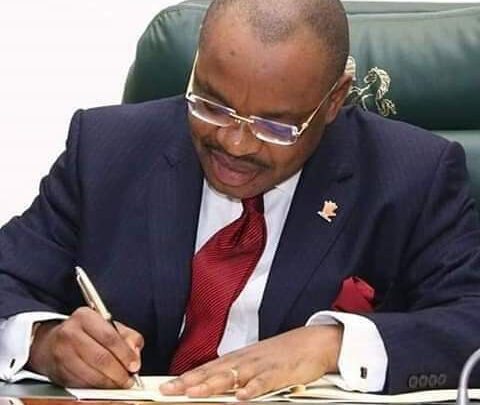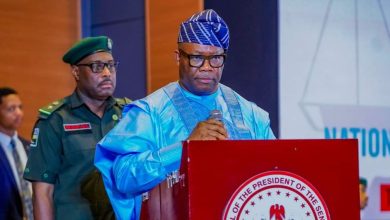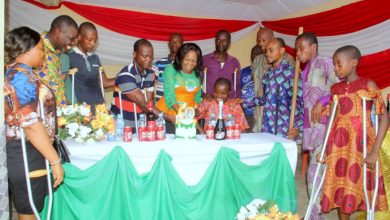
Openness and transparency are key ingredients to build accountability and trust, which are necessary for the functioning of democracies and market economies.- Angel Gurría, OECD Secretary-General
The above statement by the Secretary General of the Organisation for Economic Co-operation and Development gives insight into how imperative it is for democratic societies to be open and transparent in their runnings.
Like compass, budget is what guides the running of government. Experts posit that for democracy to function and economy to thrive, the budget must not only be open, but citizens must participate in the budgetary processes.
Nigeria joined the nearly 80 countries in the Open Governance Partnership, OGP in 2016. As a member, Nigeria has committed to concrete reforms and fourteen broad commitments through its National Action Plan, including ambitious commitments to further improve fiscal transparency and public participation in the budgeting process.
Nigeria could achieve significant progress by following through on the seven commitments that are particularly relevant for its State governments. These governments are responsible for over 40 percent of public expenditure and many of the public services citizens rely on every day.
How do states in Nigeria determine their budget priorities? How can transparency, accountability, and participation help alleviate some of the issues regarding fiscal sustainability in Nigerian states?The last 20 years have seen remarkable efforts on public financial management (PFM) reforms in Nigeria. Yet, many discussions of PFM reforms are focused at the central level. Over 50 percent of federally distributable revenues are spent at subnational levels.
In 2018, the World Bank had advanced N43.4bn performance grant to some States in Nigeria based on Fiscal Transparency measures.
The grant was shared to the 24 benefiting states having met the eligibility criteria- Abia, Adamawa, Bauchi, Benue, Delta, Edo, Ekiti, Enugu, Gombe, Jigawa, Kaduna, Kano, Katsina, Kebbi, Kogi, Kwara, Niger, Ondo, Ogun,Oyo, Osun, Sokoto, Taraba and Yobe .
According to the federal government, a total of N43.42 billion (about $120.6 million) was disbursed to 24 eligible states based on their achievements under the performance-based grant component of the World Bank-assisted States Fiscal Transparency, Accountability and Sustainability (SFTAS) programme in 2018.
Kaduna State got the highest share of the grant, N3.96 billion for having achieved the highest results while Katsina and Benue got the lowest amount of N540 million each.
The programme is targeted at promoting the culture of fiscal transparency, accountability and sustainable development by sub-national entities in the country. It is a $750 million wholly-financed loan facility by the World Bank Group affiliate, the International Development Association (IDA).
The twelve states including Akwa Ibom State that were declared ineligible for 2018 grant according to the Minister for Finance, Budget and National Planning,Zainab Ahmed
failed to publish their annual budgets and audited financial statements online within the timeframe stipulated by the SFTAS Programme Operation Manual (POM).
Despite failing to benefit from the grant, how really has Akwa Ibom State, one of the richest States in the country fared as regards budgetary transparency and participation?
The NSTB Survey
The Nigerian States Budget Transparency Survey has analyzed how transparent, open, and participatory budget and procurement processes are in Nigerian states. All 36 Nigerian states are evaluated to see how much budget information is provided, spaces and mechanisms for public participation throughout the budget process, and how robust and transparent the procurement process is in the states.
The study is done every two years and is implemented in Nigeria by Civil Resource Development and Documentation Centre,
CIRDDOC with support from the The Department for International Development (DFID).
In Akwa Ibom State, the research was conducted with Policy Alert as Supervising Consultant and Peace Point Development Foundation (PPDF) as Lead Researcher for 2018 research year.
Understanding the Study
Sub-National Budget Transparency Survey (SNBTS) is a survey aimed at raising awareness and consciousness of the leadership of the 36 States of the Federation on budget transparency and participation process and inspiring a spirit of ‘competitiveness’ in the States toward promotion of increased public access to Government budget information.
For the purpose of the survey, “publicly available” information is defined as that information which any/all members of the public might be able to obtain from the public authorities responsible for issuing such documents. The first place to check for the needed information is the websites of the state authorities in charge of issuing the relevant documents. A second step would be to visit the issuing authorities .
Summary of Findings
The average score of the year in question was 29, meaning that most states do not publish enough budget information, have limited spaces for citizens to be involved in the budget process, and provide minimal information on the procurement process.
With a score of 87, Jigawa State performed best on the Index, meaning they provided citizens with extensive budget information, have effective mechanisms for public consultation throughout the budget process, and have an open and robust procurement process.
Findings show that only Jigawa state scored above 60 on all three sub-indices—availability of key budget documents, public participation, and procurement transparency.
Findings highlights that Akwa-Ibom, Adamawa, Bauchi, Bayelsa, Borno, Edo, Imo, Rivers, and Zamfara have no mechanisms for the public to be involved in any phase of the budget process.
Findings proved that overall, Akwa Ibom State scored 12, down from a score of 22 in the previous 2015 survey. This kept Akwa Ibom State at the rank of 29 among 36 States of the Federation, thus falling among states that provide scant or no information. Comparatively, in South South, Delta State toped the chat while ranking third in the country with the score of 64.
Public Availability of Key Budgets Documents
The State Budget Document Availability Index evaluates the public availability of key budget documents in each state. The key budgets documents are: State Budget Call Circular, Pre-budget statement/ Medium Term Expenditure Framework, State Budget Appropriation Law, State Quarterly Budget Implementation Reports, State Auditor-General’s Report, State Draft Budget Estimates, State Citizen’s Budget and State State Mid-Year Review.
Top performers are Jigawa and Delta, with scores of 84 and 82 respectively. Kaduna and Ebonyi states follow, each with scores above 60. Average score in 2018 is 33, meaning citizens have minimal access to budget information in States.
CIRDDOC reports that this is an improvement from the 2015 Index which had an average score of 26. A net increase of 39 budget documents are also available in 2018.While the increase of budget information is welcomed, the report notes that more than half of all budget documents are still not publicly available. The report states that several states have regressed. Cross River, Ekiti, Benue, and Adamawa states have significantly reduced the amount of budget information disclosed since 2015. Akwa Ibom State improved on this scoring 22 up from seven (7) in 2015 survey.
Public participation in the budget process
With an average score of 17, the State Public Participation Index 2018 finds that few states have spaces for meaningful public participation. According to the report, average score has dropped by 9 points since 2015, but despite this overall decrease, several states have made significant improvements. The report says that Jigawa state scores 100 and Anambra state scores 67.
Eight states (including Akwa Ibom ) score between 20 and 60, meaning they provide limited spaces for public consultation on budget matters. Akwa Ibom’s scores dropped from 50 in the last survey to 0. The researchers however explain that the reason Akwa Ibom State scored 50 in 2015 was because of the methodology approved for the research which allowed Public Hearing conducted by the House of Assembly to be counted as Public Participation in budget process. The researchers note that in 2018, such methodology has been discarded since according to them, “there is little citizens can do to change the budget at that level.” The researcher points out that public participation is expected to start at the level of the Executive.
Public access to procurement information
Findings show that Nigerian states provide more information on procurement than on the budget, and there is an improvement when compared to 2015. It is discovered that 27 states have a legal framework guiding the procurement process, while 32 states have some form of a public procurement bureau to guide the process. In five of these 32 states, the private sector and/or civil society are a part of the bureaus. 17 states centralize pre-bidding documents to the state public procurement bureau. Six states invite civil society organizations (CSOs) to the process when bids for tenders are opened, and nine states proactively publish procurement decisions. Akwa Ibom scored 29 in 2015 but in 2018 the score is 2 thus placing Akwa Ibom State at the bottom of the table (36 out of 36 States).
Recommendations
CIRDDOC advise that States can use limited, existing resources to make all budget documents publicly available.
The researcher notes “If you can publish one, you can publish all. State governors, Honourable Members in State House of Assembly, and Auditors-General can open the budget process to citizens as a means to build effective public engagement and management.
” Procurement processes in Nigerian states should be rooted in robust legislation and have well capacitated bureaus to ensure an open, competitive, and transparent selection and implementation process. Harmonise online platforms for publication of budget information.”
With the findings and recommendations given, is there hope that Akwa Ibom State will fare better in the 2020 report?
Akwa Ibom State and 2020 Prediction
The Executive Director of Policy Alert, Tijah-Bolton Akpan predicts that in 2020, there are indications that suggest that Akwa Ibom State may fare better than in 2018.
He acknowledge that recently, Akwa Ibom State has undertaken a few fiscal governance reforms by publishing its fiscal activities online. Yet, he advises that there is a need to harmonize the fiscal activities from various MDAs where they are published to State Government Website.
Akpan mentions that the recent assent given to the Public Procurement Law by the Governor and the inclusion of Civil Society representative into the Akwa Ibom State Public Procurement Council may give the State an edge.
He however notes that the State still needs to sign on to open Governance Partnership, have a Medium Term Development Plan, start budget participation process at the Executive level and most importantly go for a learning tour in Jigawa and Kaduna State on issues of budgetary transparency and participation.
The Supervising Consultant goes a step further to expose the documents that would be needed in 2020 survey. They include pre-Budget Statement: a) State Budget Call Circular 2020, b) State Medium Term Expenditure Framework (MTEF) and Fiscal Strategy Paper (FSP)- 2020, Executive Budget Proposal (EBP):State Draft Budget Estimates- 2020, State Citizens Budget 2020, State Approved Budget Volumes / Appropriation Law – 2020.
On In-Year Reports, they are State Quarterly Budget Implementation Reports- 2020, State Mid-Year Review – 2020, Year-End Report: State Accountant-General’s Report -2018, 2019, and State Auditor General’s Report – 2018.
While noting that there is need for all relevant Government Agencies to cooperate with the research team to enhance good ranking for the State, he nevertheless stresses “However, in 2020 survey, when a document is not online, it means not publicly available but produced for internal used. Thus, you can’t rated favourably”.
With all insights laid bare, it is the hope of many that Akwa Ibom State will act to become more transparent and make the public participate more in the budgetary process thus stand a chance to benefit from the colossal World Bank grant on fiscal transparency.




